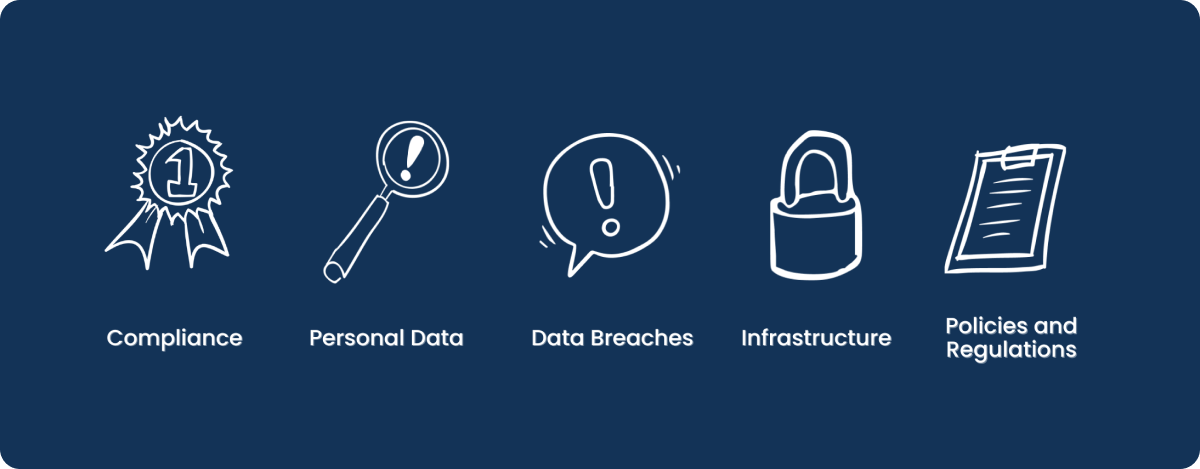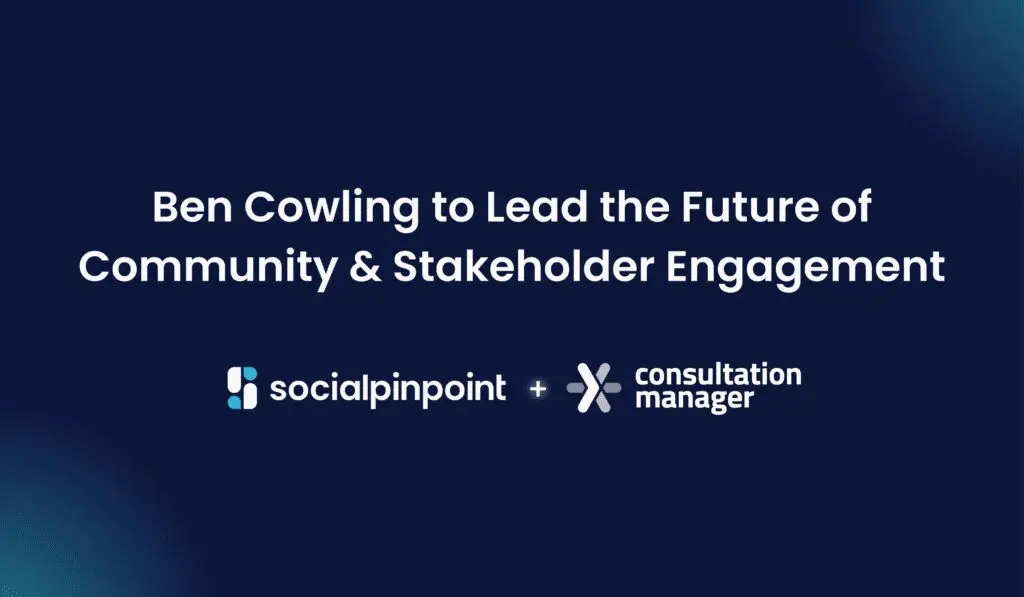In today’s digital world, online platforms and digital engagement tools have played a significant role in connecting communities closer together with their local and federal governments. As we continue to connect with our communities and capture private and personal data the need for understanding the impact of data protection and privacy in community engagement is essential.
Community engagement facilitates meaningful interactions by giving community members a voice to support decision makers in making better informed decisions.
So, as individuals are increasingly relying on online engagements for public participation and communication, it’s important for organizations to ensure that data protection and privacy are one of their main priorities.
But with the rise of digital technology and as more personal data is being shared and collected during online consultations, you might begin to wonder… Where is my information is going? Is my data being protected?
In this article, we will discuss the importance of data protection and privacy in community engagement by providing valuable insights into how organizations handle your data, so you can feel more confident in the safety and security of your personal information.

Why is data protection and privacy important in community engagement?
Making sure that personal data is safe and secure is not only a fundamental right but also essential in the context of community engagement.
Organizations need to assure their community that sensitive information is kept safe as they promote their dedication to creating a secure and trustworthy environment by ensuring data protection and privacy is a top priority.
Implementing robust data protection measures not only aids to fulfill legal obligations but it also creates a welcoming and respectful environment where everyone’s worth is recognized.
Protecting sensitive data by taking preventative measures to safeguard this information is essential. Implementing procedures like data encryption, access control, physical protection, and pseudonymization ensures an appropriate level of security in accordance with these associated risks.

Adhering to legal frameworks and regulations for data protection.
Data protection and privacy are critical considerations for organizations. Fortunately, legal frameworks and regulations have been implemented worldwide to help support these concerns. These regulations generally require organizations to be transparent and secure in how they handle their information
For instance, the General Data Protection Regulation (GDPR) in Europe is used to protect the privacy and personal data of individuals in the EU by giving individuals more control over their data. Similarly, the California Consumer Privacy Act (CCPA) in California or the Privacy Act 1988 (Cth) in Australia provides residents privacy protection in those regions.
As a community engagement practitioner, you need to ensure that you are adhering to the relevant frameworks and regulations in your region.

Key principles of data protection.
While there are many different legal frameworks around the world, these regulations are usually governed by certain key privacy principles. When it comes to global regulations, it’s important to keep certain key principles in mind for your community engagement process.
GDPR’s 7 key principles provide a fantastic overview on morals and ethics your organization should uphold throughout your consultation period:
- Lawfulness, Fairness, and Transparency: Process personal data legally and transparently.
- Purpose Limitation: Collect data for specific purposes and avoid incompatible processing.
- Data Minimization: Collect only necessary and relevant data.
- Accuracy: Ensure personal data is accurate and up to date.
- Storage Limitation: Retain data for the necessary duration and delete it when no longer needed.
- Integrity and Confidentiality: Implement security measures to protect personal data.
- Accountability: Demonstrate compliance with the GDPR and maintain records of processing activities.
Here’s an example that demonstrates the implementation of Lawfulness, Fairness, and Transparency:
A local government decides to conduct a community survey to collect feedback on upcoming infrastructure projects. To ensure transparency, they explicitly communicate the purpose of the survey, explain how the data will be utilized, and clarify the legal grounds for processing participants’ data. They provide transparent information on data protection measures, such as anonymizing responses and ensuring data confidentiality.
By following these steps, the local government ensures compliance with the GDPR principle of Lawfulness, Fairness, and Transparency. They prioritize open communication, respect participants’ rights, and provide clear information on how data is collected, used, and protected.
As you can see, these principles help organizations safeguard individuals’ privacy and adhere to global regulations.

Ensuring your community engagement platform is private, secure, and safe.
When utilizing online platforms for community engagement, it is essential to prioritize privacy to safeguard sensitive information and foster a trusted and secure environment for community members to participate and interact. Consider the following measures:
Secure Infrastructure
Community members can choose reputable platforms that employ robust security measures, such as encryption, to safeguard their user data. Social Pinpoint, for example, is ISO 27001 Certified, achieving the highest standard of security, safety, and support.
Private Projects, Anonymity and Pseudonymity
Offering private projects or the choice to participate anonymously/using pseudonyms can help you can create a safer space for community members to participate in a more closed environment. This fosters a sense of comfort and feeling more secure by eliminating concerns about identification.
Citizen Membership
Citizen memberships often entails a verification process to ensure that community members are genuine and accountable for their actions. This helps maintain a safer and more trustworthy environment for community members within the platform. With Social Pinpoint, you can build a flexible and customizable user registration system to capture members.
Access Controls
User permissions enable your organization to control access and make sure that only the appropriate people can view and update sensitive information. Access controls are a great way of lowering the chance of unauthorized leaks or data breaches. Social Pinpoint has a sophisticated user management system that lets users control and manage all users and their levels of permission and access.
Next steps to implement better data protection and privacy.
Data protection and privacy are paramount considerations when engaging communities.
Make sure your privacy policies are easy to find and understand. Let people know exactly how their personal information is treated, stored, and shared. And ensure you establish channels for community members to ask questions, voice concerns, and request modifications or deletion of their personal information.
By adhering to data protection frameworks, following key principles and keeping security top of mind, you can feel more confident that your community engagement data is safe. And, by taking these additional steps to maintain the privacy of your community members, you can instill greater confidence that they’re safe too.












